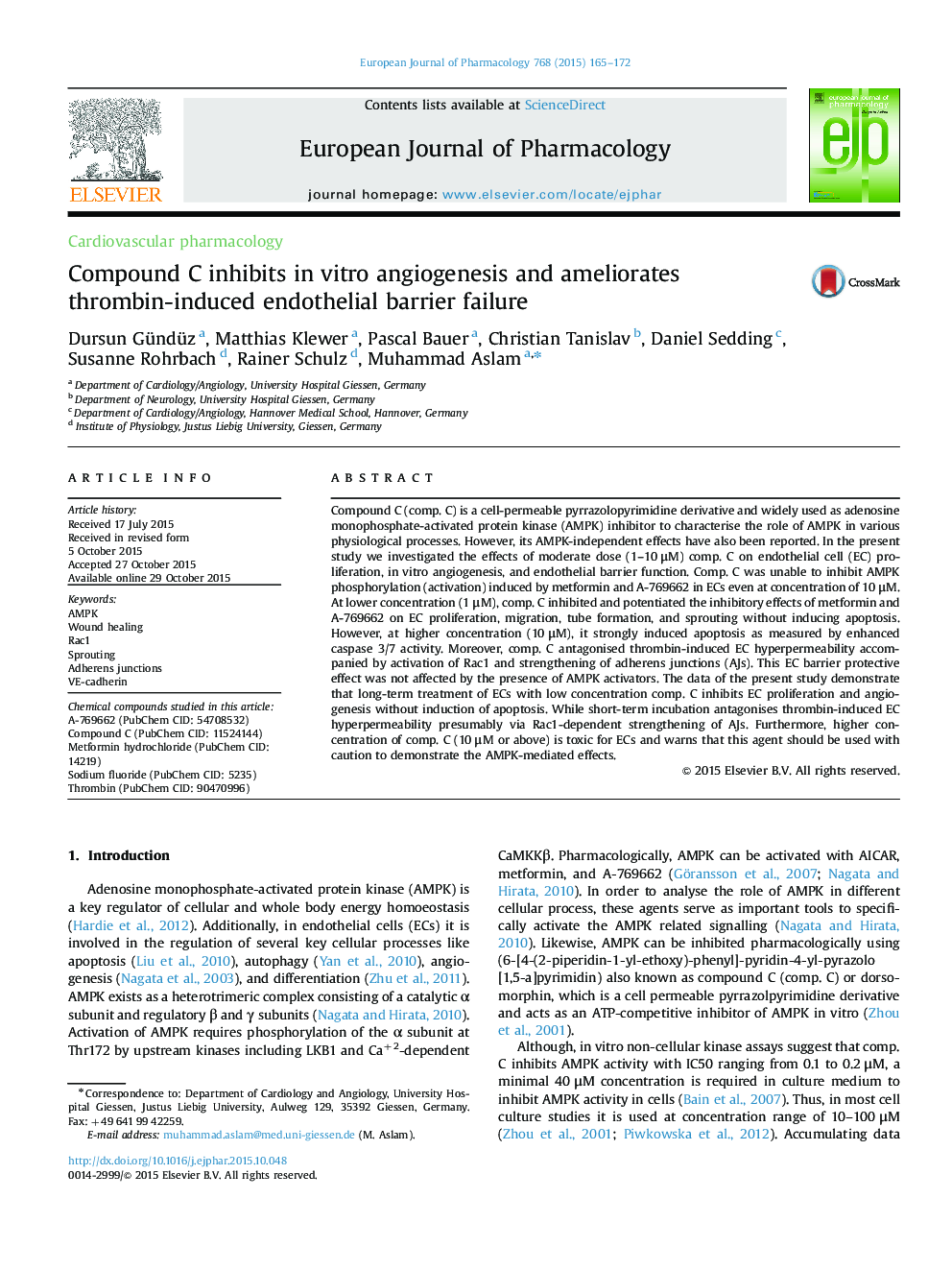| Article ID | Journal | Published Year | Pages | File Type |
|---|---|---|---|---|
| 2531251 | European Journal of Pharmacology | 2015 | 8 Pages |
Compound C (comp. C) is a cell-permeable pyrrazolopyrimidine derivative and widely used as adenosine monophosphate-activated protein kinase (AMPK) inhibitor to characterise the role of AMPK in various physiological processes. However, its AMPK-independent effects have also been reported. In the present study we investigated the effects of moderate dose (1–10 μM) comp. C on endothelial cell (EC) proliferation, in vitro angiogenesis, and endothelial barrier function. Comp. C was unable to inhibit AMPK phosphorylation (activation) induced by metformin and A-769662 in ECs even at concentration of 10 μM. At lower concentration (1 μM), comp. C inhibited and potentiated the inhibitory effects of metformin and A-769662 on EC proliferation, migration, tube formation, and sprouting without inducing apoptosis. However, at higher concentration (10 μM), it strongly induced apoptosis as measured by enhanced caspase 3/7 activity. Moreover, comp. C antagonised thrombin-induced EC hyperpermeability accompanied by activation of Rac1 and strengthening of adherens junctions (AJs). This EC barrier protective effect was not affected by the presence of AMPK activators. The data of the present study demonstrate that long-term treatment of ECs with low concentration comp. C inhibits EC proliferation and angiogenesis without induction of apoptosis. While short-term incubation antagonises thrombin-induced EC hyperpermeability presumably via Rac1-dependent strengthening of AJs. Furthermore, higher concentration of comp. C (10 μM or above) is toxic for ECs and warns that this agent should be used with caution to demonstrate the AMPK-mediated effects.
